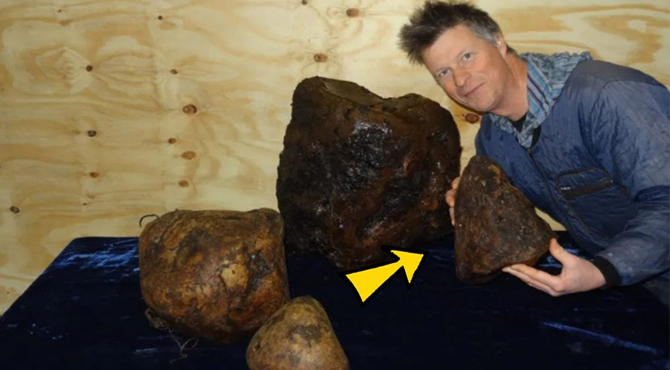Stephen Whitton and his wife, Viola, embarked on a casual beach walk that forever altered their lives. What they initially believed to be a peculiar beach find turned out to be an exceedingly valuable treasure, known as ambergris, with an estimated worth of thousands of dollars.
On a tranquil stroll along Middleton Sands, a favored beach spot in Lancashire, England, Stephen and Viola’s senses were suddenly piqued by an unusual acrid odor wafting through the air. Their curiosity led them to a peculiar rock, approximately the size of a football, which had washed ashore.
Back home, the couple’s intrigue only intensified. Stephen weighed the enigmatic rock, sparking an online frenzy of speculation. Suggestions poured in, ranging from volcanic rock to meteorite. Even an amateur meteorologist advised a magnet test for further clarification.
The magnet test proved critical as it ruled out the meteorite theory, intensifying concerns about the mysterious substance. Fearing potential hazards, the couple promptly contacted authorities.
Responding swiftly, officials in protective gear arrived at the Whitton residence. They cordoned off the area and proceeded inside to assess the situation while Stephen and Viola anxiously awaited outside.
Following a meticulous examination, officials delivered astonishing news to the couple. The perplexing rock was identified as ambergris, a rare substance renowned for its distinctive and pungent scent, described as a blend of squid and farmyard manure.
Ambergris, prized for centuries, is known for its repulsive odor that mellows over time. This valuable substance is derived from sperm whales, specifically from their bile ducts, and is excreted over many years.
Ambergris’s allure lies in its extreme scarcity, with only about one percent of sperm whales producing this coveted substance. Notably, it is predominantly found in the Atlantic Ocean.
Sperm whales were once relentlessly hunted for their blubber, leading to the harvesting of ambergris for its unique scent. The ban on whaling in the 1980s, including ambergris, added to the substance’s mystique and rarity.
While the trade of ambergris is prohibited in most countries, the United Kingdom classifies it as a waste product, making Stephen and Viola’s discovery entirely legal.
While another piece of ambergris, found in Morecambe, fetched an astounding $155,000 due to its larger size, Stephen and Viola’s find, though smaller, is estimated to be worth approximately $65,000, a remarkable windfall.
In an embodiment of British modesty, Stephen shared plans to use their newfound wealth to purchase a static caravan, demonstrating a down-to-earth approach to their unexpected fortune.
The Whitton’s serendipitous discovery of ambergris on the shores of Middleton Sands stands as a testament to the unpredictability of life’s hidden treasures, reinforcing the idea that extraordinary finds can emerge from the most unassuming of circumstances.










